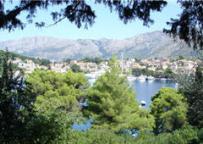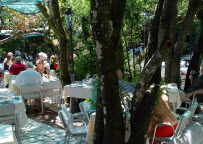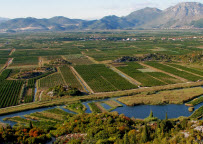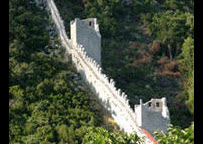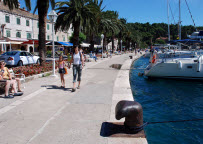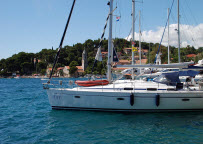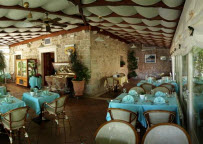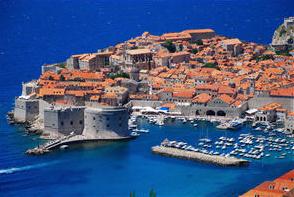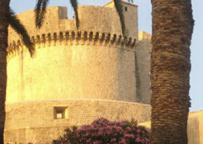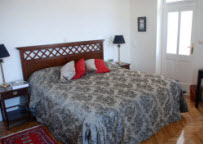
Looking for things to do and see beyond Dubrovnik? Here are some great options from Cavtat to the fortifications at Ston
Cavtat
Cavtat is a small coastal town located 20 kilometers southeast of the Dubrovnik city. It was developed in the fourth century as a Roman colony and was seated on the ruins of an old Greek town Epidaurum, which was destroyed in the attack of Avars and Slavs in the seventh century. Cavtat was rebuilt in the Middle Ages, and since then was a part of the Dubrovnik republic until its collapse in 1808.
Cavtat today is a tourist town full of cultural and historical monuments. Its breathtaking Mediterranean beauty makes it a must to spend an day strolling the street, swimming or just sitting in a cafe taking in the sights.
It has a pleasant Mediterranean climate and has plenty of charm and character. It was a cradle and a sanctuary for a number of distinctive Renaissance poets. Filled with Pre-Christian monuments, mostly of Roman origin, it is well known as a town that gave birth to a great jurist, scientist and cosmopolitan Baldo Bogisic, painter Vlaho Bukovac, and a politician and a publicist Frano Supilo.
It's beautiful waterfront often has super yachts anchored in the shelter of its bay. The old palms gives the place a special feeling of magic in the afternoons and in the evening hours. The restaurants offer traditional Dalmatian home cuisine, including fish, shellfish, vegetables, olive oil, home made cheeses and wines.
There are several good swimming spots with make-shift 'cafe's' where you can purchase an ice-cream or drinks. A wonderful spot to sit and watch the sun fall into the sea.
Cavtat is a small coastal town located 20 kilometers southeast of the Dubrovnik city. It was developed in the fourth century as a Roman colony and was seated on the ruins of an old Greek town Epidaurum, which was destroyed in the attack of Avars and Slavs in the seventh century. Cavtat was rebuilt in the Middle Ages, and since then was a part of the Dubrovnik republic until its collapse in 1808.
Cavtat today is a tourist town full of cultural and historical monuments. Its breathtaking Mediterranean beauty makes it a must to spend an day strolling the street, swimming or just sitting in a cafe taking in the sights.
It has a pleasant Mediterranean climate and has plenty of charm and character. It was a cradle and a sanctuary for a number of distinctive Renaissance poets. Filled with Pre-Christian monuments, mostly of Roman origin, it is well known as a town that gave birth to a great jurist, scientist and cosmopolitan Baldo Bogisic, painter Vlaho Bukovac, and a politician and a publicist Frano Supilo.
It's beautiful waterfront often has super yachts anchored in the shelter of its bay. The old palms gives the place a special feeling of magic in the afternoons and in the evening hours. The restaurants offer traditional Dalmatian home cuisine, including fish, shellfish, vegetables, olive oil, home made cheeses and wines.
There are several good swimming spots with make-shift 'cafe's' where you can purchase an ice-cream or drinks. A wonderful spot to sit and watch the sun fall into the sea.

Pelijesac Peninsula
To the north east from Dubrovnik towards Split are numerous
villages tucked along the coast with their fishing ports and
seaside restaurants. Fifty kilometers from Dubrovnik is the
start of the famous Pelijesac Peninsula. Here you will find
delightful villages on the sea such as Mali Ston and Luca. For a
great seafood meal you cannot go past the ‘Kapetanova Kuca’
at Mali Ston.
You cannot miss the extraordinary fortifications at Ston which
extend over 5.5 kilometres and if you are feeling fit, you can
walk some of the walls for great views over the region. This
place was a source of great wealth for Dubrovnik for centuries
through the extraction of salt from sea water. The salt pans
which date from Roman times are clearly to be seen, and in fact
feature in a Summer Camp which explore the history of salt
extraction, and gets you hands on!
Apart from wonderful stone villages and stunning scenery
Pelijesa’s great claim to fame is as home to Croatia’s greatest wines. For those in the know this is the home of the indigenous Plavac Mali grape and the wines produced under the Dingac and Postup labels are well known internationally.
To the north east from Dubrovnik towards Split are numerous
villages tucked along the coast with their fishing ports and
seaside restaurants. Fifty kilometers from Dubrovnik is the
start of the famous Pelijesac Peninsula. Here you will find
delightful villages on the sea such as Mali Ston and Luca. For a
great seafood meal you cannot go past the ‘Kapetanova Kuca’
at Mali Ston.
You cannot miss the extraordinary fortifications at Ston which
extend over 5.5 kilometres and if you are feeling fit, you can
walk some of the walls for great views over the region. This
place was a source of great wealth for Dubrovnik for centuries
through the extraction of salt from sea water. The salt pans
which date from Roman times are clearly to be seen, and in fact
feature in a Summer Camp which explore the history of salt
extraction, and gets you hands on!
Apart from wonderful stone villages and stunning scenery
Pelijesa’s great claim to fame is as home to Croatia’s greatest wines. For those in the know this is the home of the indigenous Plavac Mali grape and the wines produced under the Dingac and Postup labels are well known internationally.

Neretva River Delta
If you are happy to cover a few more kilometers then continue west to the Neretva River delta which is the fruit bowl of Croatia. This river which begins life by tumbling under the wonderful bridge at Mostar in Herzegovina has spread out at the coast to create a lush and fertile plain of where all manner of fruit are grown and sold on the roadside.
If you are happy to cover a few more kilometers then continue west to the Neretva River delta which is the fruit bowl of Croatia. This river which begins life by tumbling under the wonderful bridge at Mostar in Herzegovina has spread out at the coast to create a lush and fertile plain of where all manner of fruit are grown and sold on the roadside.

Duda & Mate Restaurant
For a culinary experience in delightful surroundings turn right just south of Ploce and take the road to Metkovic (also the road to Mostar). As you pass through this busy town turn left over the Nertva River and continue on for five kilometers to the town of Vid on the banks of the Norin River. Just as you enter the town turn left you will find ‘Duda & Mate’ Restaurant with the most temping and wonderful frog and eel dishes.
You can even have lunch cruising the river on a traditional delta boat but give them a ring the day before to reserve on 020 687500
For a culinary experience in delightful surroundings turn right just south of Ploce and take the road to Metkovic (also the road to Mostar). As you pass through this busy town turn left over the Nertva River and continue on for five kilometers to the town of Vid on the banks of the Norin River. Just as you enter the town turn left you will find ‘Duda & Mate’ Restaurant with the most temping and wonderful frog and eel dishes.
You can even have lunch cruising the river on a traditional delta boat but give them a ring the day before to reserve on 020 687500
